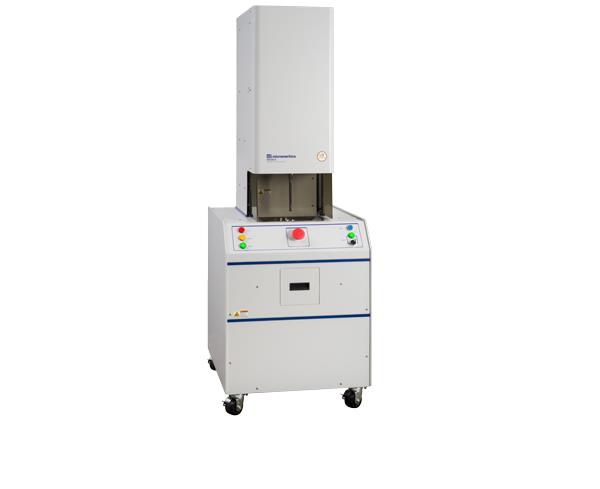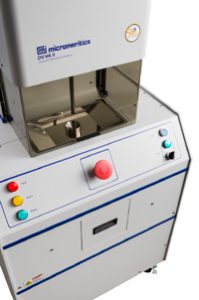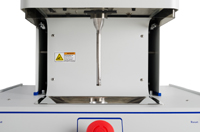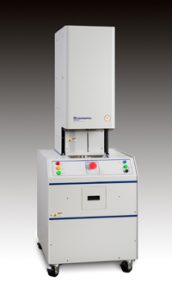DVVA II - Dynamic Void Volume Analyzer

The DVVA® II is a state-of-the-art dynamic void volume analyzer capable of measuring the compressed void volume and density of carbon black powders and with exceptional precision and accuracy.
This instrument can be used to predict the optimal polymer/carbon black ratios in polymer-reinforcing materials, providing an automated alternative to the oil absorption test, while satisfying the requirements of ASTM D7854-16 test method.
Features
Applications
The DVVA II can be used to accurately measure the fundamental property of carbon black aggregate structure by calculating the void volume of a sample under compression, providing an automated cleaner/greener alternative to the oil absorption test, while satisfying the requirements of ASTM D7854-16 test method. Having a high resolution set of data that describes the void volume vs. geometric mean pressure characteristics of the material is a fundamental step in understanding, controlling or predicting phenomena related to void volume.
Operation
Prior to a test, the mass and density (skeletal or theoretical) of the sample material is entered. The test involves compressing the sample in an increasing pressure fashion to an applied pressure up to 230 MPa (33 kpsi). During compaction, the change in volume is monitored as a function of geometric mean pressure, thus recording the compacting behavior of the material to be characterized independent of mass and geometry. The difference between the initial apparent volume and the apparent volume as a function of pressure expresses the reduction in void volume as a result of compression. The difference between each apparent volume and the skeletal volume is the void volume, for that pressure, usually expressed as the geometric average of the applied and transmitted pressures.
- Meets all requirements of ASTM D7854-14 test method, with the use of two independent load cells
- Fully automated instrument control
- USB connection to PC
- Windows 7 operating environment
- Safety features prevent operation until safety barrier is in place
- Variable sample size
- User-replaceable piston tip
- Compression scan results in less than 5 minutes
- Automated corrections to data
- Exceptional precision
- Hydraulic fluid not needed
- Ejects compressed sample for further testing
- Free of hazardous materials and waste
Pressure Scan Modes:
Data Inputs:
User Model Inputs: Enables user to calculate parameters, such as alternate COAN structure and in-rubber properties from void volume curves based on your own experimentation Data Outputs:
|
Calculations Include:
Dimensions:
|









